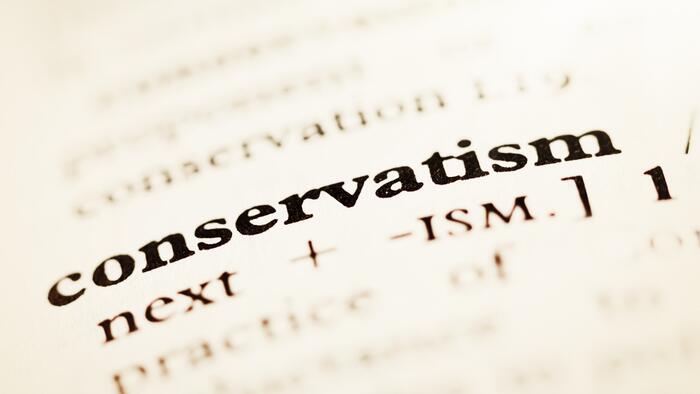
Key Ideas at a Glance:
- Conservatism = Cheerful commitment to truth and realism.
- American twist: Stems from Founders’ focus on limited government + U.S. geography (big, isolated, new nation).
- Vs. Progressives: Less utopian, more accepting of human flaws.
- Big on clear language: Rejects euphemisms (e.g., “affirmative action” = “race-based discrimination”).
- Change vs. Tradition: “Don’t fix what isn’t broken.”
- Reforms often backfire: Good intentions ≠ good outcomes.
What Is Conservatism?
- Core belief: Seek truth and accept reality as it is.
- Think of it as preferring a “warts-and-all” view of life over idealistic dreams.
- Why cheerfulness? Conservatives don’t expect perfection. They focus on gratitude for what works, rather than rage over flaws.
American Conservatism’s Roots
- Founders’ Vision:
- Government should stay small to protect personal freedom.
- Example: Rules should prevent tyranny, not micromanage lives.
- Geography:
- America’s size and isolation (oceans on two sides) allowed unique cultural growth, away from Europe’s old conflicts.
Conservatives vs. Progressives: A Contrast
- Progressives (called “Leftists” or “transnational progressives” here):
- Often push big societal changes for “perfect” outcomes.
- Can become gloomy when their utopian plans fail.
- Conservatives:
- See humans as imperfect but capable of good.
- Value humor and everyday joys. (Ever seen a conservative comedian? Think fewer lectures, more laughs.)
Clear Language Matters
- Conservatives dislike vague or manipulative terms. Examples:
- “Taxation” = “Government redistributing wealth.”
- “Islamophobia” = A misleading term, they argue, used to silence critics of extreme ideologies.
- Why? They believe Orwellian “Newspeak” (twisting words to control thought) hides truth.
Change vs. Tradition
- Be skeptical of change:
- Historical wisdom: “If it ain’t broke, don’t fix it.” (Lord Falkland)
- William F. Buckley Jr. famously said conservatives “stand athwart history, yelling Stop” to harmful trends.
- Not anti-progress, but cautious about unintended consequences.
When Reforms Backfire: Examples
Australian philosopher David Stove highlighted how good intentions go wrong:
- Medicine solves a disease → Population boom strains resources.
- Contraceptives control population → Traditional cultures collapse.
- Welfare for single mothers → Incentivizes single parenthood.
- Minimum wage hikes → Small businesses shut down, jobs vanish.
Takeaway: Quick fixes often create new problems.
Hope for the Future
Victorian poet Matthew Arnold believed every society has a “saving remnant”—a group that protects culture from chaos. Conservatives hope this group (think teachers, leaders, everyday heroes) can uphold values like free speech, family, and community.
In Summary:
American conservatism isn’t about resisting all change. It’s about:
✅ Trusting time-tested traditions.
✅ Speaking plainly.
✅ Avoiding utopian pipe dreams.
✅ Finding joy in life’s imperfections.
Thought to ponder: Could embracing reality—not denying it—lead to wiser choices? 🌟